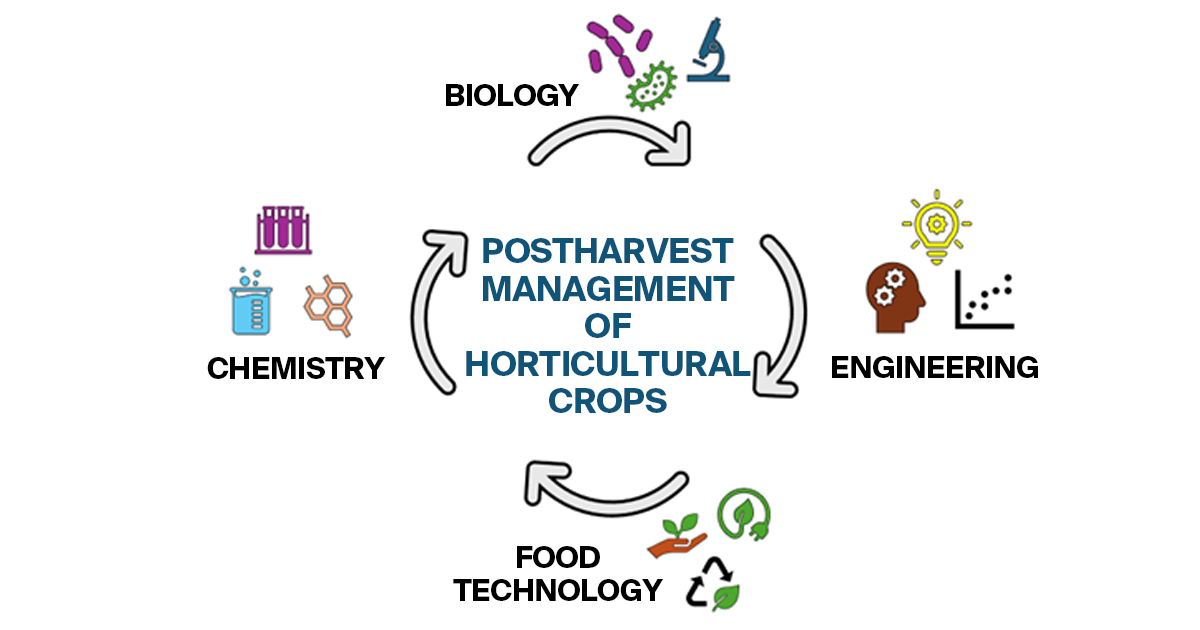Postharvest Biology and Technology of Horticultural Crops
A special issue of Horticulturae (ISSN 2311-7524). This special issue belongs to the section "Postharvest Biology, Quality, Safety, and Technology".
Deadline for manuscript submissions: 5 September 2025 | Viewed by 158

Special Issue Editors
Interests: fruit and vegetable technology; food technology; food quality; postharvest technology; food processing
Special Issues, Collections and Topics in MDPI journals
Interests: spectroscopy; image acquisition; digital image processing; product packaging; postharvest technique; chemometrics
Special Issues, Collections and Topics in MDPI journals
Special Issue Information
Dear Colleagues,
Postharvest management is critical in delivering high-quality produce to consumers, especially given the increasing global focus on food security and sustainability. As the world grapples with the dual challenges of perishable food products and the urgent need to reduce food waste, developing innovative techniques to maintain the quality and extend the shelf life of horticultural crops has become paramount.
This Special Issue will explore cutting-edge scientific and technological advancements in the postharvest management of horticultural crops. We welcome contributions that showcase novel and innovative practices for preserving the quality and prolonging the shelf life of fruits, vegetables, and flowers postharvest. For this Special Issue, we encourage an interdisciplinary approach, integrating aspects of biology, chemistry, engineering, and food technology to address complex postharvest challenges.
Recognizing the diverse nature of global agriculture, this Special Issue will consider postharvest challenges across various regions and production systems. By fostering a comprehensive understanding of postharvest biology and technology, we aim to contribute to the development of more efficient, sustainable, and resilient food systems worldwide.
Dr. Noelia Castillejo
Dr. Danial Fatchurrahman
Guest Editors
Manuscript Submission Information
Manuscripts should be submitted online at www.mdpi.com by registering and logging in to this website. Once you are registered, click here to go to the submission form. Manuscripts can be submitted until the deadline. All submissions that pass pre-check are peer-reviewed. Accepted papers will be published continuously in the journal (as soon as accepted) and will be listed together on the special issue website. Research articles, review articles as well as short communications are invited. For planned papers, a title and short abstract (about 100 words) can be sent to the Editorial Office for announcement on this website.
Submitted manuscripts should not have been published previously, nor be under consideration for publication elsewhere (except conference proceedings papers). All manuscripts are thoroughly refereed through a single-blind peer-review process. A guide for authors and other relevant information for submission of manuscripts is available on the Instructions for Authors page. Horticulturae is an international peer-reviewed open access monthly journal published by MDPI.
Please visit the Instructions for Authors page before submitting a manuscript. The Article Processing Charge (APC) for publication in this open access journal is 2200 CHF (Swiss Francs). Submitted papers should be well formatted and use good English. Authors may use MDPI's English editing service prior to publication or during author revisions.
Keywords
- postharvest management
- food sustainability
- shelf life extension
- horticultural crops
- interdisciplinary approach
Benefits of Publishing in a Special Issue
- Ease of navigation: Grouping papers by topic helps scholars navigate broad scope journals more efficiently.
- Greater discoverability: Special Issues support the reach and impact of scientific research. Articles in Special Issues are more discoverable and cited more frequently.
- Expansion of research network: Special Issues facilitate connections among authors, fostering scientific collaborations.
- External promotion: Articles in Special Issues are often promoted through the journal's social media, increasing their visibility.
- e-Book format: Special Issues with more than 10 articles can be published as dedicated e-books, ensuring wide and rapid dissemination.
Further information on MDPI's Special Issue policies can be found here.






